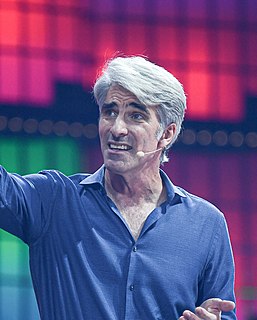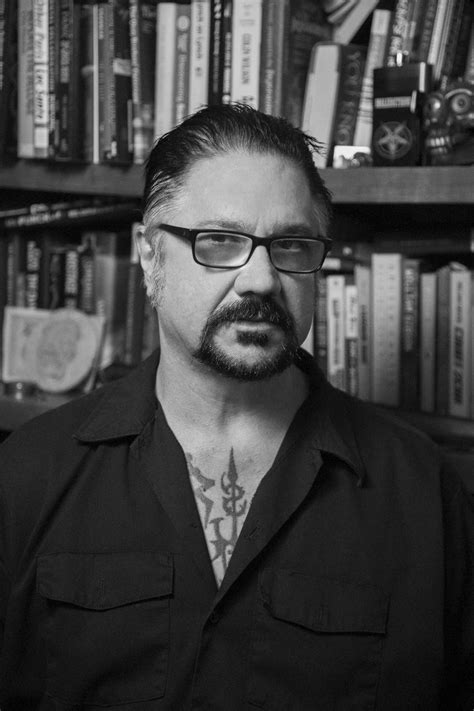A Quote by Craig Federighi
There's no question in my mind of the value in technology in fueling young minds. Like any other tool, if you simply throw it in the classroom and don't consider how best to take advantage of that tool, and you try the old ways with a new piece of technology on the desk, it's no panacea.
Related Quotes
[Internet] technology, like anything else that mankind creates is a tool and that tool can be used for good or for evil, like a light saber. Technology is supposed to bring people together, streamline things and make life easier and in a lot of ways it does that. However, technology can also disconnect you from other people and break down the social network, the real social network of family and friends and interpersonal communication, and isolate people, make them feel alone, make them feel small. So it's a tool that needs to be used correctly.
People always think of technology as something having silicon in it. But a pencil is technology. Any language is technology. Technology is a tool we use to accomplish a particular task and when one talks about appropriate technology in developing countries, appropriate may mean anything from fire to solar electricity.
Embedded in every technology there is a powerful idea, sometimes two or three powerful ideas. Like language itself, a technology predisposes us to favor and value certain perspectives and accomplishments and to subordinate others. Every technology has a philosophy, which is given expression in how the technology makes people use their minds, in how it codifies the world, in which of our senses it amplifies, in which of our emotional and intellectual tendencies it disregards.
As each wave of technology is released. It must be accompanied by a demand for new skills, new language. Consumers must constantly update their ways of thinking, always questioning their understanding of the world. Going back to old ways, old technology is forbidden. There in no past, no present, only an endless future of inadequacy
But technology is the real skin of our species. Humanity, correctly seen in the context of the last five hundred years, is an extruder of technological material. We take in matter that has a low degree of organization; we put it through mental filters, and we extrude jewelry, gospels, space shuttles. This is what we do. We are like coral animals embedded in a technological reef of extruded psychic objects. All our tool making implies our belief in an ultimate tool. That tool is the flying saucer, or the soul, exteriorized in three-dimensional space.
You can't just stop technological progress. Even if one country stops researching artificial intelligence, some other countries will continue to do it. The real question is what to do with the technology. You can use exactly the same technology for very different social and political purposes. So I think people shouldn't be focused on the question of how to stop technological progress because this is impossible. Instead the question should be what kind of usage to make of the new technology. And here we still have quite a lot of power to influence the direction it's taking.
Tools may be animate as well as inanimate; for instance, a ship's captain uses a lifeless rudder, but a living man for watch; for a servant is, from the point of view of his craft, categorized as one of its tools. So any piece of property can be regarded as a tool enabling a man to live, and his property is an assemblage of such tools; a slave is a sort of living piece of property; and like any other servant is a tool in charge of other tools.

































